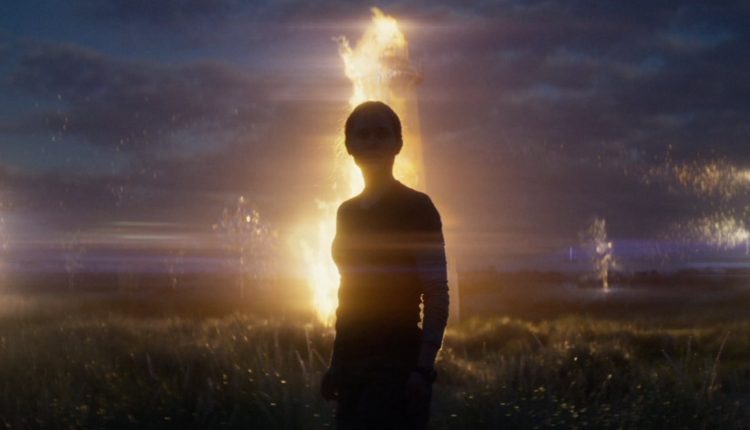My best friend and I share a hilariously terrifying feeling that spawned from the Disney documentary Oceans. Under the immense weight of miles of water above it was a shrimp whose entire life was darkness. Aimlessly eating across the ocean-floor, a bioluminescent squid identifies it as prey and approaches with a black and white strobe light created inside its skin. This insignificant creature who has known an existence of only black and grey bears witness to flashing light in its face and absolutely freezes. In that moment of incomprehension, the alien squid snatches it and ends its life.
That transient instant is pure comedy for us. For some reason, we identify with the shrimp because well, we’re all morons in the face of nature. Yet wrapped inside that memory is also our estimation of how a confrontation with an extra-dimensional being or a god would unfold: mind-melting, open-mouthed astonishment with a thick foundation of dread.
Alex Garland’s Annihilation is the first work that has ever brought me this close to how I imagine this foreboding terror would feel. This passing moment of other-wordly horror is why you simply must see this movie.
At the forefront of Annihilation is a masterfully simple narrative which engages the audience by unfolding in a non-linear manner, and those with a penchant to explain themes and imagery can certainly find their fill. And yet, none of that compares to the indescribable sensory experience that unfolds in the final act.
This climactic moment of visual splendor, elevated by a hulking, alien score, meshes beauty and the grotesque into a single entity as the result of unadulterated imagination manifested into film. It’s the kind of scene which couldn’t possibly be predicted because there is no single precedent by which to anticipate its spectacle. Its indefinable character is a sign of our engagement with a concept unknown to ourselves before the viewing.
It is the pure novelty which all art strives to capture.
So resist the urge to read the countless articles which claim to hold the key to understandingthe film’s meaning or message. Rather than racing to shut down the interpretive chains of thought initiated by Annihilation’s banquet of sensational rapture, allow for yourself a lack of ultimate closure. Find solidarity with the characters in the film as they profess the movie’s central motif: “I don’t know”.
In the end, Garland’s Annihilation is an object of pure aesthetic enjoyment created through a story unsure even of itself, steeped in suspense and anxiety, and underpinned by a sensational assault on our eyes and ears. It’s indescribable power is inherited most by the audience member who cares not for tidy explanations, but instead relishes in the film’s capacity to make us feel as small and terrified as a little shrimp.
Originally published on OK Beast
